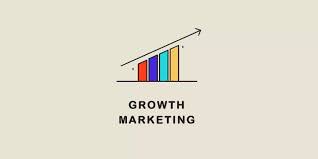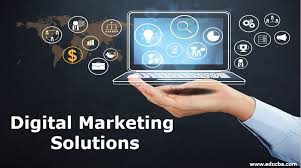Unlocking Business Success Through Strategic Growth Marketing
The Power of Growth Marketing in Driving Business Success
In today’s competitive business landscape, traditional marketing strategies are no longer enough to drive sustainable growth. Enter growth marketing – a dynamic approach that focuses on experimentation, data-driven decision-making, and continuous iteration to achieve business objectives.
Growth marketing goes beyond traditional marketing tactics by combining elements of product development, marketing, and data analysis to identify scalable growth opportunities. By leveraging insights from customer behaviour and market trends, businesses can optimise their strategies for maximum impact.
One key aspect of growth marketing is its emphasis on measurable results. By setting clear goals and tracking key performance indicators (KPIs), businesses can assess the effectiveness of their campaigns in real-time and make adjustments as needed. This agile approach allows for rapid iteration and refinement based on data-driven insights.
Another crucial component of growth marketing is the focus on customer acquisition and retention. By understanding the customer journey and implementing targeted campaigns at each stage, businesses can attract new customers while also nurturing existing relationships to drive long-term loyalty and advocacy.
Furthermore, growth marketing encourages a test-and-learn mindset, where experimentation is central to uncovering what resonates with the target audience. By testing different messaging, channels, and tactics, businesses can identify what drives engagement and conversion rates, leading to more effective campaigns over time.
Ultimately, growth marketing is about driving sustainable business success through continuous improvement and innovation. By embracing a data-driven approach, prioritising customer-centric strategies, and fostering a culture of experimentation, businesses can unlock new opportunities for growth and stay ahead in today’s fast-paced digital landscape.
5 Essential Tips for Effective Growth Marketing Strategies
- Focus on data-driven decision making to understand customer behaviour and preferences.
- Utilise A/B testing to optimize marketing strategies and improve conversion rates.
- Build strong relationships with customers through personalised communication and engagement.
- Stay updated on industry trends and competitor strategies to identify new opportunities for growth.
- Collaborate across teams, including marketing, sales, and product development, to align goals and drive cohesive growth initiatives.
Focus on data-driven decision making to understand customer behaviour and preferences.
In the realm of growth marketing, a critical tip for driving success lies in prioritising data-driven decision-making to gain deep insights into customer behaviour and preferences. By leveraging data analytics and customer feedback, businesses can uncover valuable patterns and trends that inform strategic marketing initiatives. Understanding the nuances of how customers interact with products or services enables businesses to tailor their offerings to meet specific needs and preferences, ultimately fostering stronger customer relationships and driving sustainable growth.
Utilise A/B testing to optimize marketing strategies and improve conversion rates.
Utilising A/B testing is a powerful tool in the realm of growth marketing, enabling businesses to compare different versions of their marketing strategies and determine which one resonates best with their target audience. By analysing the results of these tests, businesses can make data-driven decisions to refine their approaches, ultimately leading to improved conversion rates and more effective marketing campaigns. A/B testing empowers businesses to continuously iterate and optimise their strategies, ensuring that they are always delivering the most impactful messages to their audience.
Build strong relationships with customers through personalised communication and engagement.
To succeed in growth marketing, it is crucial to build strong relationships with customers through personalised communication and engagement. By understanding their preferences, needs, and behaviours, businesses can tailor their messaging and interactions to create meaningful connections. Personalisation not only enhances customer loyalty but also increases engagement and drives conversion rates. By fostering a sense of trust and relevance through personalised communication, businesses can establish long-lasting relationships that lead to sustained growth and success in today’s competitive market.
Stay updated on industry trends and competitor strategies to identify new opportunities for growth.
To succeed in growth marketing, it is essential to stay informed about industry trends and competitor strategies. By keeping a close eye on the latest developments in the market, businesses can identify new opportunities for growth and innovation. Understanding what competitors are doing can provide valuable insights into areas where a business can differentiate itself and capture a larger share of the market. Continuous monitoring of industry trends and competitor activities allows businesses to adapt their strategies proactively and stay ahead in the competitive landscape of growth marketing.
Collaborate across teams, including marketing, sales, and product development, to align goals and drive cohesive growth initiatives.
Collaboration across teams, such as marketing, sales, and product development, is essential in growth marketing. By aligning goals and working together towards a common objective, businesses can drive cohesive growth initiatives that leverage the strengths of each department. When teams collaborate effectively, they can share insights, coordinate efforts, and ensure that all aspects of the business work in harmony to achieve sustainable growth. This cross-functional collaboration not only enhances communication and efficiency but also leads to more innovative and impactful strategies that resonate with customers and drive business success.




